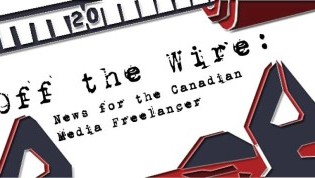Freelancers maintain personal blogs for all sorts of reasons: to have an all-in-one-place online portfolio, to increase their profile in a particular community or gain a reputation as an authority on a particular topic, to experiment with different types of writing than they get to do in their freelance work, or, often, to post photos of their cats.
But how many of us think of our personal blogs as a way to earn a steady income?
A recent New York Times article, "My Blog Is Also Paying My Bills," describes how bloggers are earning a significant portion or all of their income from their sites.
The article breaks down the main ways personal blogs can earn income into six categories:
Advertising: It's definitely the most common way to monetize your blog. Ads are sold based on a few different models. These can be categorized as: cost per click (an ad that pays you when someone clicks on it); cost per action (pays you when someone does something specific, like download a file); and cost per mille (pays you to display the ad a thousand times). The most popular advertising services are Google's AdSense, BlogAds, and Technorati Media. They each operate differently, so based on how your blog works, how many visitors you get, how likely they are to click on ads, etc., one may work better for you than another. If your blog gets tons of traffic, you might also be able to sell ads to companies directly. This is especially easy if your blog is focused on something concrete and marketing-friendly. Bloggers who make videos (such as tutorials) can profit from those too, by putting them on sites like YouTube or Blip.tv, where users can choose to run ads with their uploads.
Merchandise: Depending on the blog's focus, it could make sense to sell products related to its content. If you write a design blog, you could sell home decor items made by local designers, for example. If your blog becomes so popular that it's a brand in itself, like PerezHilton.com or LOLCats or the like, selling branded merchandise (stickers, T-shirts, etc.) becomes an option.
Offline events: If your blog is advice-based, holding events such as seminars and workshops based on your content makes more sense than merchandise. This isn't a viable option for many, but for someone like Steve Pavlina (quoted in the NYT article), who writes about personal development, meeting up with your devoted followers in person can bring in some big bucks.
Book deals: The dream result for many writers, book deals are becoming increasingly common for successful bloggers. Remember that jokey blog Stuff White People Like? It's generated not one but two books. When longtime waiter Steve Dublanica began his (initially) anonymous blog, Waiter Rant, he had no idea it would become wildly popular and spawn a bestseller of the same name and a follow-up, Keep the Change.
Donations: Some personal blogs are true labours of love that have no chance of attracting the eye, and dollars, of advertisers. If you see your site as the blog equivalent of a non-profit, soliciting donations could be the way to go. Taking into account your time, and the enjoyment your readers get from your work, putting out a virtual hat and asking for change isn't an unreasonable step to take. Jason Kottke did that on his blog, asking readers for their support as he tried to make the blog his full-time job. An easy way to solicit donations is by adding PayPal's Donate Button to your blog. Wordpress, for example, has easy instructions on how to install it.
Paywalls/paid content: Big news publications are just beginning to try this out, but for some blogs, charging readers for "premium content," such as tutorials, or charging businesses to post content on your site (think: job board) is a straightforward way to make some cash. Of course, like every other option above, this only works if the content on the site is of high quality and readers see its value.
With so many options, it might begin to sound easy to make your blog into a money-making venture. It isn't. The people who do it successfully put in a lot of time and effort to make their blogs pay off. But if you're a passionate blogger anyway, it can't hurt to try to squeeze a few bucks from your site. In those lean times when freelance gigs are few and far between, a bit of steady income from Google ads could be a week's worth of groceries or one less bill to worry about.Search
Recent Posts





